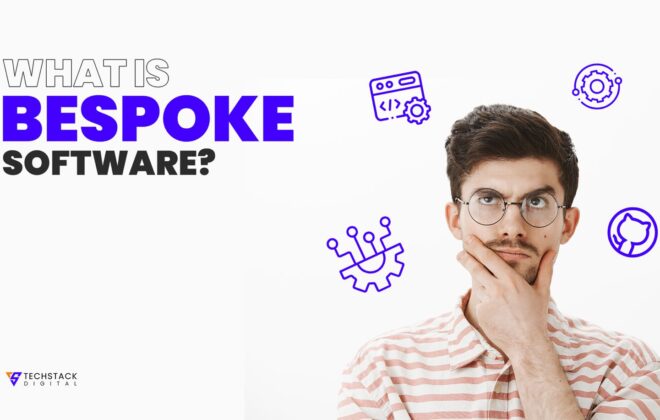JAVA OR C++? WHICH PROGRAMMING LANGUAGE TO USE?
Starting on a new project and wondering whether to use Java or C++. You’re not alone.
Many developers face this dilemma when they have to choose between two of the most popular programming languages in the world.
Both Java and C++ have their strengths and advantages, but they also have their drawbacks and limitations. So how do you really decide which one is best for your project? It all depends on what you’re trying to achieve and what kind of challenges you’re ready to face.
In this blog, we’ll help you understand the differences between Java and C++, where they are normally used, and how you can choose the right one for your project.
What is Java?
Born in the 1990s java programing language quickly gained popularity because of its versatility and platform independence meaning you can write code once and run it anywhere, as long as you have a Java virtual machine installed. Java is also easy to read and maintain, because of its object-oriented architecture and rich set of libraries. It is widely used for enterprise applications, web development, and Android mobile apps.
What is C++?
C++ is a programming language that was created by Bjarne Stroustrup in the 1980s. It’s an extension of C language, with added features for object-oriented programming. It is a powerful and fast language that gives you direct access to hardware and system resources. C++ is ideal for creating complex and high-performance programs, such as gaming engines, embedded systems, software development, and more.
Where do we use Java and C++?
Where do we use Java and C++ confusing right? Don’t worry we have got you covered.
Java and C++ can be used for various applications and domains, here are some examples of where each language is used:
Web development
Java can be used for web development. it can create robust and scalable web applications that can run on multiple platforms and devices. Gmail, Netflix, Amazon, and LinkedIn are some of the popular web applications that use Java.
Android App Development
Java can also be used for Android app development. It offers a rich set of libraries and tools for creating user-friendly and interactive mobile applications. WhatsApp, Instagram, Spotify, and Uber are some of the popular Android apps that use Java.
Enterprise Applications
Java can also be used for enterprise applications because it can handle complex business logic and data processing with ease and efficiency. Oracle, IBM, SAP, and Salesforce are among the prominent enterprise software companies that employ Java.
Cloud-based applications
Due to its platform independence java is also suitable for cloud-based services.
Google Cloud Platform, Amazon Web Services, Microsoft Azure, and Apache Tomcat are some of the cloud-based services that use Java.
Big data analytics And IOT applications
Big data analytics and IoT applications also prefer to use Java due to its capacity to manage large-scale data processing. Twitter Facebook, Samsung SmartThings, Oracle IoT Cloud Service, and IBM Watson are some of the applications that use Java.
Where Do We Use C++?
System level programming
C++ is normally preferred in system-level programming, as it can create operating systems, device drivers, and firmware development. For example, Windows, Linux, macOS, and Android are some of the operating systems that use C++.
Game development
Another area where C++ is preferred is game development, as it can create high-performance and graphics-intensive games that can run on various platforms and devices.
Unreal Engine, Unity, CryEngine, and Godot are some of the game engines that use C++.
Real-time applications
C++ is also preferred for real-time applications that require precise control over timing and efficient memory management, such as robotics, embedded systems, and aerospace applications.
Arduino, ROS, NASA Mars Rovers, and SpaceX rockets are some of the real-time applications that use C++.
Graphics and Gui applications
graphics and GUI applications also normally use C++ because it can create fast and smooth graphics rendering and animation with libraries like OpenGL and DirectX.
Photoshop, Microsoft Office, Google Chrome, and Adobe Flash are some of the graphics and GUI applications that use C++.
Performance critical and cross-platform applications
C++ is also preferred for performance-critical applications and cross-platform development. MATLAB, VLC Firefox, Dropbox, Skype, and Spotify are some of the cross-platform and performance-critical applications that use C++.
How to choose between Java and C++?
Now comes the hard part! Java or C++ which programing language to choose?
Choosing between Java and C++ can be tricky, but it ultimately boils down to your project requirements and preferences. To make the right decision, always consider the following questions:
- What type of application are you looking to build? Is it a web-based application or a desktop application? Is it a simple or a complex application? Is it a standalone or a distributed application?
- What platforms or systems does the application need to interact with? Does it need to run on multiple platforms or devices? Does it need to access hardware or system resources? Does it need to work with other applications or services?
- What type of scalability do you need? Does your application need to handle a large number of users or transactions? Does your application need to grow or change over time? Does your application need to be flexible or adaptable?
- Do you have enough development resources like time, experience, and expertise in the language Do you have enough tools or support for the language?
Based on these questions, you can always weigh the pros and cons of each language and decide which Language suits your needs better.
To sum up, there is no right answer to which language is better. It all depends on what you’re trying to achieve and the kind of challenges you’re ready to face. The best way to choose between Java and C++ is to understand your project requirements and your own preferences. Then, compare the features and benefits of each language. Remember both languages have their advantages and disadvantages, so choose wisely.
If you have any questions or comments, feel free to share them with us. Happy coding!




